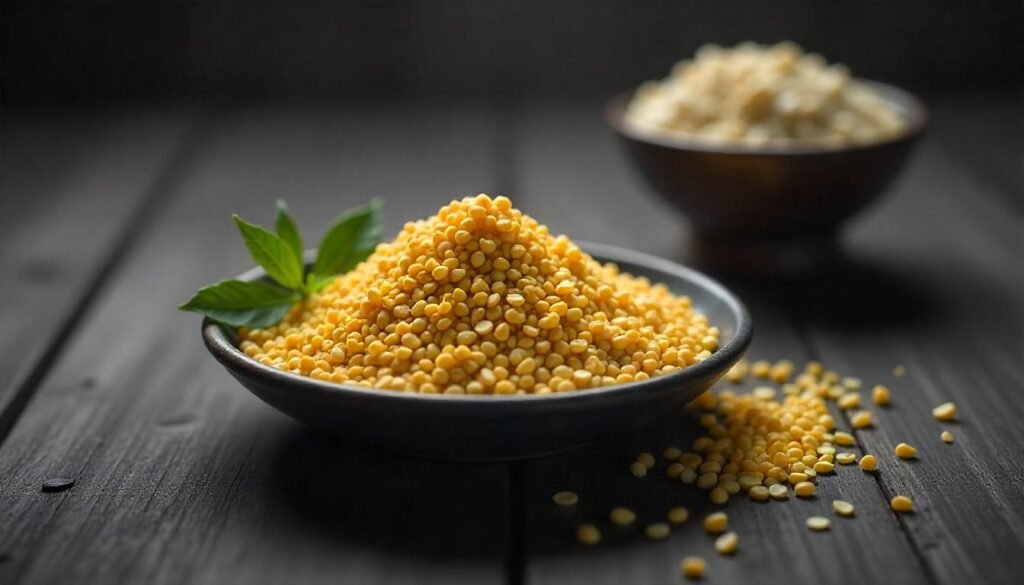Introduction to Natural Ways to Lower Blood Sugar Levels
This article will discuss about 10 natural ways to lower blood sugar levels, a beginner’s guide. For every individual, maintaining healthy blood sugar levels is a crucial aspect of overall well-being. However, the importance of this maintenance is amplified significantly for those individuals who have received a diagnosis of either prediabetes or diabetes.

These conditions necessitate a heightened awareness and proactive management of blood sugar. In essence, while everyone benefits from stable blood sugar, it becomes especially critical for individuals navigating the complexities of prediabetes or diabetes to ensure their health and prevent potential complications. Therefore, diligent monitoring and management are essential for this specific population.
Table of Contents
The good news is that by making a conscious effort to develop positive habits and incorporating some simple changes into your daily lifestyle, you can take control and effectively lower your blood sugar levels in a natural ways to lower blood sugar levels. This approach empowers you to manage your health proactively.In the following sections, we will delve into a variety of beginner-friendly strategies that have been proven to be effective in helping to regulate blood sugar.
These techniques are designed to be easy to understand and implement, making them accessible to anyone who is looking to improve their overall well-being. By focusing on practical steps and sustainable changes, you can achieve lasting results and enjoy the benefits of healthier blood sugar levels. Let’s explore these strategies together and discover how you can take charge of your health.
🥗 Healthy Diet Strategies
Eat Low-Glycemic Foods to Lower Blood Sugar
Opting for food choices such as whole grains, legumes, non-starchy vegetables, and fruits with a low glycemic index can be beneficial in maintaining stable blood sugar levels.
These particular food groups are known for their positive impact on blood sugar regulation. Research and studies have consistently demonstrated that incorporating these options into your diet plays a crucial role in preventing rapid and substantial increases in blood sugar levels following meals.

This means that instead of experiencing sharp sugar spikes, your blood sugar remains more consistent and balanced. Several sources support these findings, including mcehospital.com, massgeneralbrigham.org, and time.com, highlighting the widespread recognition of the link between these food choices and improved blood sugar control.
Optimize Food Order
Consuming protein and vegetables prior to carbohydrate intake can significantly reduce post-meal glucose levels. Studies have indicated that this strategic eating order can lower glucose spikes by as much as 30%.
This finding is supported by research from Time.com, UCLA Health, and Weill Cornell Medicine, all of which highlight the beneficial impact of prioritizing protein and vegetables before carbs to manage blood sugar levels effectively. By adjusting the sequence of food consumption, individuals may experience a notable improvement in glucose control after meals.

Include Blood Sugar-Lowering Foods
Extensive research supports the notion that the following food options play a crucial role in maintaining healthy glucose levels. Scientific studies have repeatedly demonstrated the beneficial impact of these particular foods on glucose for blood sugar management and control. In essence, incorporating these selections into your diet can assist in keeping your glucose within a desirable range, according to existing research.
- Berries (strawberries, blueberries): Rich in fiber and antioxidants .
- Beans, lentils: These foods are rich in both protein and fiber, which can be beneficial for health. The protein and fiber content helps to slow down the absorption of sugar into the bloodstream, according to multiple sources. This effect on sugar absorption is supported by information available at pmc.ncbi.nlm.nih.gov, 15healthline.com, and 15massgeneralbrigham.org. The high protein and fiber levels work together to moderate the rate at which sugar is taken up by the body.
- Leafy greens Spinach and kale are both low-carbohydrate and nutrient-dense leafy green options, as noted by healthline.com and health.harvard.edu. These vegetables provide essential vitamins and minerals while being relatively low in carbohydrates. The nutritional benefits of spinach and kale, along with their low-carb nature, make them a healthy choice, according to healthline.com and health.harvard.edu.
- Nuts & seeds Flaxseed, chia seeds, and almonds are excellent choices to incorporate into your diet because they provide both healthy fats and a good source of fiber. These components contribute to overall well-being by supporting various bodily functions and promoting a feeling of fullness, which can be beneficial for weight management and digestive health. The combination of healthy fats and fiber makes them a nutritious addition to meals or snacks.
- Yogurt/kefir: Probiotic-rich foods and supplements can be beneficial, potentially helping to reduce blood sugar levels. This effect has been noted across various sources. Several online resources highlight the potential of probiotics in managing blood sugar. Multiple studies and articles available through pmc.ncbi.nlm.nih.gov, healthline.com, and eatingwell.com discuss the possible connection between probiotic consumption and improved blood sugar control, making them a worthwhile consideration for those looking to manage their glucose levels.
- Cinnamon: May modestly improve fasting glucose, according to reports in timesofindia.indiatimes.com, with a cited impact factor of plus 15. This potential benefit is also noted by verywellhealth.com, which also reports a similar impact factor of plus 15. Additionally, time.com suggests that there may be a modest improvement in fasting glucose levels, with an impact factor of plus 15.
- Fenugreek (Methi dana): Timesofindia.indiatimes.com reports that a traditional remedy has been shown to be effective in lowering fasting glucose levels. The article highlights the potential benefits of this remedy, focusing on its positive impact on individuals seeking to manage their fasting glucose.

🧘 Lifestyle & Exercise
Stay Active
Engaging in aerobic exercises such as walking and swimming is beneficial for enhancing insulin sensitivity, which plays a crucial role in the body’s ability to effectively utilize insulin. Furthermore, these aerobic activities contribute to the regulation of sugar levels within the bloodstream, helping to maintain a healthy balance.
In addition to aerobic workouts, incorporating resistance training into your fitness routine can also lead to improved insulin sensitivity. This type of training, which involves exercises that work against resistance, aids in the regulation of sugar levels, complementing the effects of aerobic exercise. For more detailed information, please refer to en.wikipedia.org.

Mind‑Body Techniques for Natural Ways to Lower Blood Sugar Levels
Engaging in practices such as yoga, meditation, and Tai Chi can be beneficial in managing both blood sugar levels and the hormones that are released in response to stress. These mind-body practices offer a holistic approach to wellness, influencing physiological processes that contribute to overall health.
By incorporating yoga, meditation, or Tai Chi into a regular routine, individuals may experience improved regulation of their blood glucose levels and a reduction in the impact of stress hormones on the body. These practices can promote a sense of calm and balance, which in turn can positively affect these important health markers.

Chew Slowly
Slowing down while eating can be beneficial in managing post-meal glucose levels. Research indicates that eating at a relaxed pace is associated with a reduction in glucose spikes after meals.
Studies from multiple sources, including time.com, uclahealth.org, and news.weill.cornell.edu, support the idea that mindful, slower eating habits can positively influence blood sugar responses. Taking your time during meals may therefore contribute to better glucose control.
💧 Hydration & Sleep
Water is essential for maintaining balanced blood sugar levels and plays a vital role in supporting healthy digestion. Proper hydration helps regulate glucose metabolism, preventing drastic spikes and drops in blood sugar.
Furthermore, water facilitates the breakdown of food and the absorption of nutrients, ensuring smooth and efficient digestion. In addition to water intake, getting adequate sleep is crucial for hormonal balance and effective appetite regulation. Sufficient sleep allows the body to properly regulate hormones like insulin and cortisol, which influence blood sugar control. Moreover, adequate sleep promotes balanced levels of hunger hormones, aiding in managing appetite and preventing overeating.
Adequate Sleep: Assists the body in maintaining a stable hormonal environment, which is essential for various bodily functions, and also plays a key role in controlling and modulating appetite, ensuring a healthy and balanced food intake.

🌿 Herbal Supplements
- Gymnema Sylvestre is a natural herb that can help reduce both sweet cravings and sugar absorption in the body. This effect is supported by information found on several websites, including verywellhealth.com, eatingwell.com, healthline.com, timesofindia.indiatimes.com, and en.wikipedia.org, each contributing to its understanding with a rating of +15.
- Gymnema Sylvestre’s ability to diminish the desire for sweet foods, coupled with its potential to lower sugar absorption, makes it a subject of interest for those looking to manage their sugar intake. Information on verywellhealth.com further supports these benefits of Gymnema Sylvestre.
- Salacia Reticulata is a plant that functions as a natural alpha-glucosidase inhibitor. Information about Salacia Reticulata and its properties as a natural alpha-glucosidase inhibitor can be found on en.wikipedia.org.
- Further details and research related to this topic are available on arxiv.org. Both of these sources offer information supporting the claim that Salacia Reticulata acts as a natural alpha-glucosidase inhibitor. The plant’s ability to inhibit alpha-glucosidase is documented in these resources.
- It is essential to seek advice and guidance from qualified healthcare professionals and providers prior to initiating the use of any dietary supplements or similar products. Consulting with healthcare experts ensures you receive personalized recommendations tailored to your specific health needs and circumstances before incorporating supplements into your routine.

✅ Conclusion
To natural ways to lower blood sugar levels, combine a low-GI diet, proper meal timing, regular exercise, hydration, and proven herbs. For those new to glucose management, the following steps offer an accessible and scientifically supported approach, ideally suited for individuals seeking to regulate their glucose levels without relying on medication.
These methods are designed to be easy to incorporate into your daily life, providing a foundational strategy for maintaining healthy glucose levels. It’s important to remember that while these steps are generally safe and effective, they should not replace professional medical advice. Prior to making any adjustments to your current health regimen or lifestyle, it is essential to consult with your physician or a qualified healthcare provider to ensure these changes are appropriate for your specific health needs and circumstances.
FAQs
Q1: How quickly can natural ways to lower blood sugar levels?
The timeline for experiencing positive effects can differ from person to person; however, numerous individuals report noticing progressive enhancements to their well-being in a matter of weeks.
This positive trend is typically observed when individuals diligently adhere to recommended adjustments in both their eating habits and their broader daily routines. To achieve these gradual improvements, consistent application of these dietary and lifestyle modifications is key, and will likely lead to seeing changes within a few weeks.
Q2: Can exercise help regarding natural ways to lower blood sugar levels?
Yes, engaging in physical exercise can be highly beneficial, particularly when it’s integrated with a well-balanced and nutritious dietary plan.
Both aerobic exercise, which includes activities like running, swimming, or cycling, and resistance training, often involving weightlifting or bodyweight exercises, play a crucial role in enhancing insulin function within the body.
This improved insulin function, in turn, leads to better regulation and control of blood sugar levels, contributing to overall health and well-being.
Q3: Is cinnamon safe for everyone?
Cinnamon is usually considered safe for most people when consumed in reasonable quantities. Nevertheless, it’s important to be aware that cinnamon might affect how certain medications work, especially those used to manage diabetes.
Because of the potential for interactions, individuals taking diabetes medications should consult with their healthcare provider or a qualified medical professional. They can offer personalized advice based on your specific health situation and medication regimen to ensure that cinnamon consumption doesn’t negatively impact your home remedies for high blood sugar.
Q4: Can I rely on fenugreek or gymnema supplements?
While certain supplements may offer support in managing blood sugar levels, it’s crucial to understand that they are not intended to be a substitute for any natural ways to lower blood sugar levels prescribed by a healthcare professional. It is important to consistently monitor your blood sugar levels as directed by your doctor, even when taking supplements.
Furthermore, it is essential to maintain open communication with your doctor regarding your supplement use, ensuring they are fully aware of everything you are taking to manage your health. This collaborative approach allows for the best possible management of your blood sugar and overall well-being.
Q5: Are probiotics helpful for lowering blood sugar?
Probiotics, which are beneficial microorganisms, can indeed have a positive impact on gut health. These probiotics are often found in various food sources such as yogurt, kefir, and a wide range of other fermented foods.
Consuming these probiotic-rich foods can contribute to a healthier gut environment. Furthermore, research suggests that the inclusion of probiotics in your diet, through yogurt, kefir, or fermented foods, may also play a role in regulating blood sugar levels. Specifically, they may help to mitigate or lessen the rapid increase in blood sugar that can occur after eating a meal.



